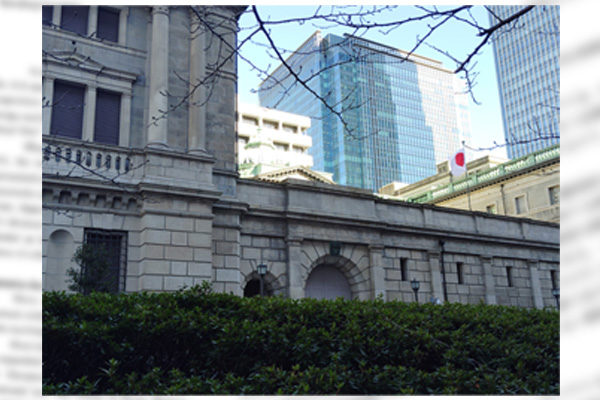The Bank of Japan at its Monetary Policy Meeting on July 31 decided to raise its policy interest rate to 0.25% and reduce new government bond purchases. The central bank is thus tightening monetary policy regarding both interest rates and money supply even amid stagnant consumption. This could destroy the chance that has come at last to break away from a 30-year deflation.
Ueda gives priority to correcting yen’s depreciation
BOJ Governor Kazuo Ueda at a press conference emphasized that the rate hike “will not exert any significant negative impact on the economy.” He expressed his expectation that wage and price increases would continue to intensify, while making no mention of deflation. According to the Household Income and Expenditure Survey conducted by the Ministry of Internal Affairs and Communications, however, household consumption in May declined on a year-on-year basis while households’ real income turned upward due to the substantial wage hike through spring wage negotiations. The government’s Annual Report on Japan’s Economy and Public Finance released by the Cabinet Office on August 2 stated that “it is necessary to confirm that there is no prospect of a return to deflation in the future,” effectively acknowledging that deflationary pressure has not gone away yet.
Ueda expressed grave concern about the yen’s depreciation which he said would lead to higher prices and indicated a positive attitude toward further interest rate hikes. An editorial in the on-line edition of the Wall Street Journal commented Ueda as “the only major-economy central banker to admit to being concerned about exchange rates,” indicating that if the BOJ admits conducting monetary policy with exchange rates in mind, U.S. Republican presidential nominee Donald Trump who has strongly criticized the yen’s depreciation may take advantage of the BOJ policy. Ueda is so preoccupied with correcting the yen's depreciation that he has completely forgotten that the exchange rate issue that can easily turn into a Japan-U.S. dispute is a taboo in monetary policy.
Insensitive Kishida government
The government of Prime Minister Fumio Kishida is too insensitive to Ueda’s policy of ignoring deflation and prioritizing correcting the yen’s depreciation. While the BOJ is guaranteed independence from the government in its monetary policy management, the government can request that the central bank postpone a policy change vote at a policy meeting when there are objections to the change. Before the latest policy meeting, however, Finance Minister Shunichi Suzuki had already informed the BOJ that he would not exercise the right to make such request. This allowed Ueda to facilitate the proceedings at ease in accordance with his scenario of raising interest rates and quantitative monetary tightening.
The Kishida government is trying to secure the achievement of a primary budget balance surplus in fiscal 2025. Achieving the primary balance surplus means keeping defense, social security, and other policy expenditures within tax revenues. Achieving the surplus will entail continued spending reduction and tax hike, which will chill private demand and increase deflationary pressure. While reiterating that there is a chance to break away from deflation, Kishida does not care even when the BOJ and the Ministry of Finance are working together to preserve deflationary pressure. He is extremely empty.
Hideo Tamura is a Planning Committee member at the Japan Institute for National Fundamentals and a columnist for the Sankei Shimbun newspaper.


